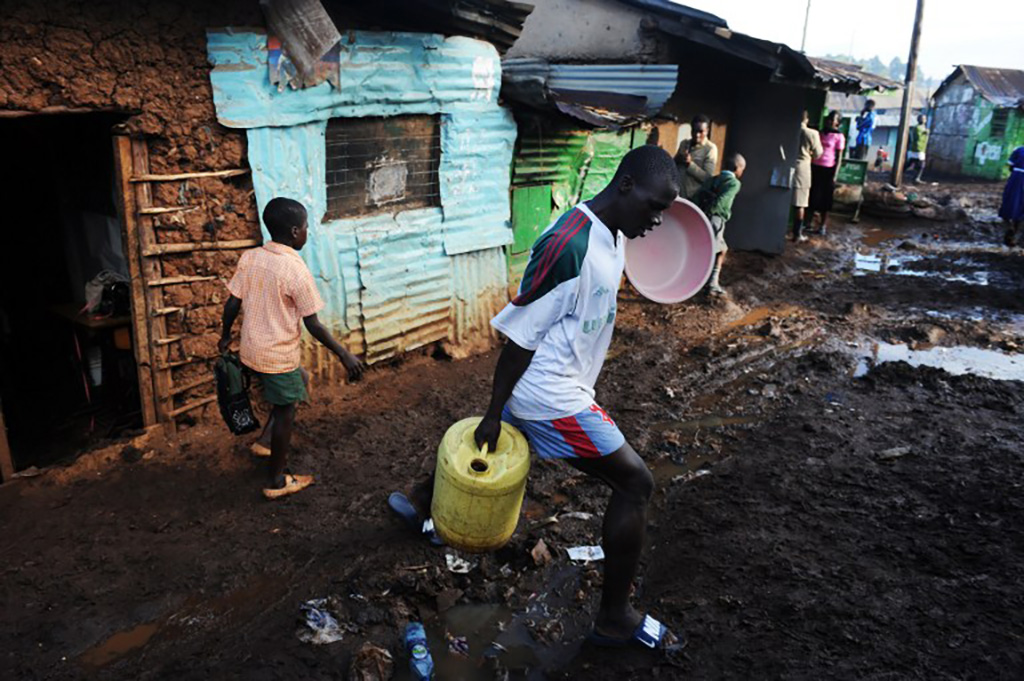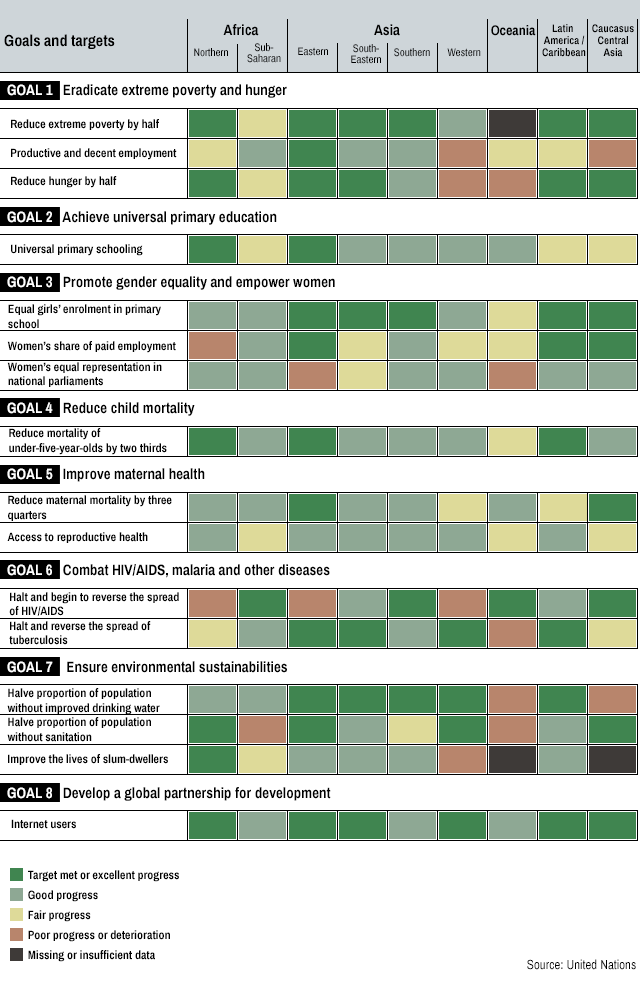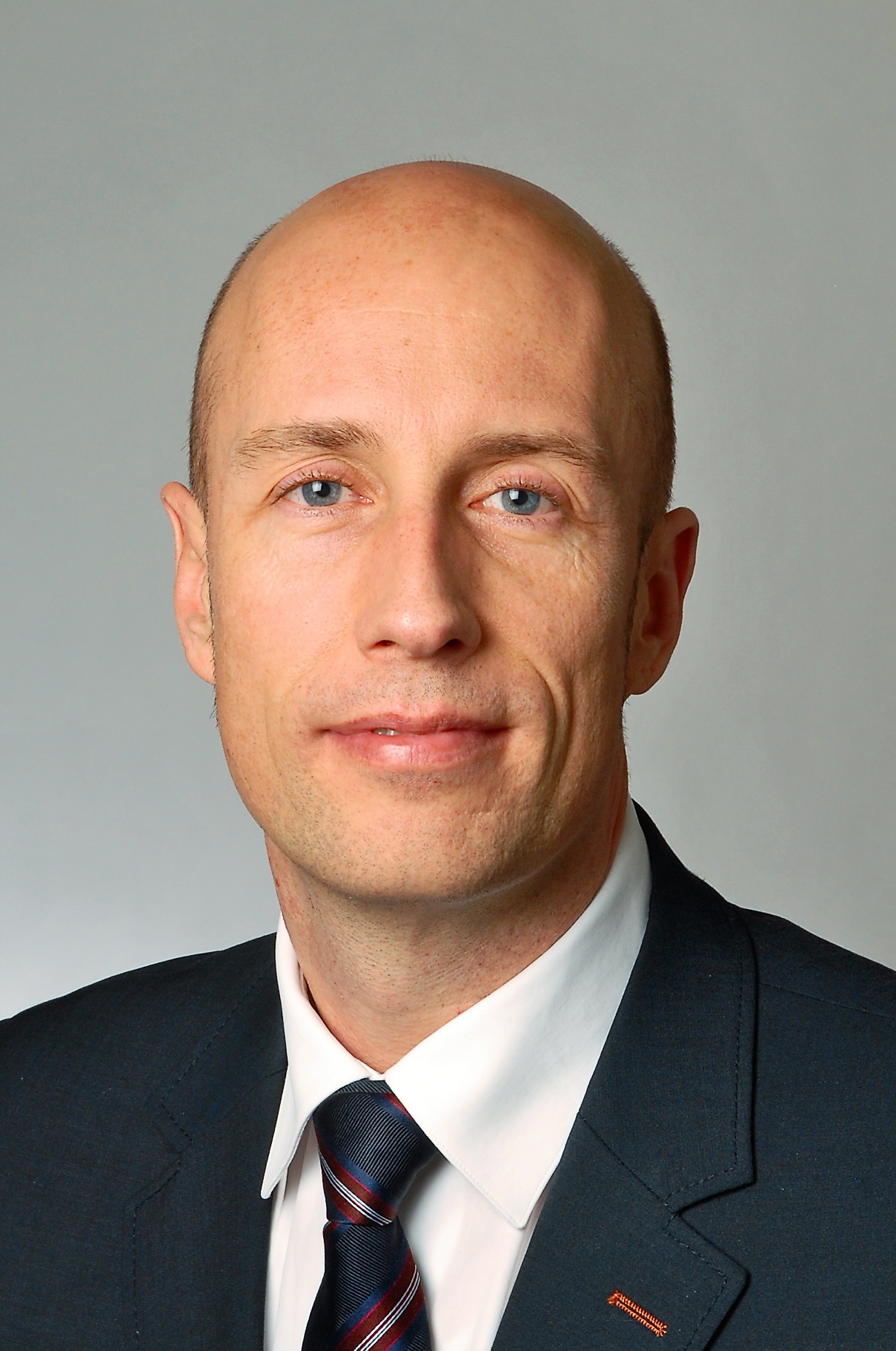
Development goals: tackling poverty’s root causes

Reducing poverty and improving living standards are at the core of the Millennium Development Goals (MDGs)External link. They will be replaced by a new set of objectives from next year. Swiss ambassador Michael Gerber tells swissinfo.ch why the focus should address the root causes of poverty and inequality while protecting the environment.
Gerber is coordinating Switzerland’s post-2015 development positionExternal link at national (see infobox below) and international levels. A set of so-called Sustainable Development Goals (SDGs)External link are emerging to take the place of the controversial MDGs.

More
MDG 2015 progress chart
swissinfo.ch: There are now less than 500 days to go before the MDGs expire. There has been an enormous amount of critique and debate on the MDGs. What is your general assessment?
Michael Gerber: It’s quite understandable that there are so many mixed views on MDGs. Their main success is a political one. We really managed to mobilise people around the world to reduce poverty and make huge steps in areas such as health or education. In developing countries even local people heard of MDGs. That’s quite a success.
Developing countries took them seriously and devised national poverty reduction strategies on the basis of MDGs. Donor countries did the same for international cooperation strategies.
This also resulted in concrete steps forward. I wouldn’t mention halving poverty as the biggest success of MDGs, as we have to be honest that this goal was achieved three years before the 2015 deadline also due to the economic development of China, India and southeast Asia.
But at the same time it was possible to reduce poverty almost everywhere, even in Africa. You always have sub-Saharan Africa, which is at the bottom of the list, but these countries had a different starting point when the MDGs began. It’s not fair to compare countries with the same indicators which did not start at the same starting line.

swissinfo.ch: But it wasn’t all good news, was it?
M.G.: On the other hand there are goals which will be difficult to be achieved by 2015, like health goals 4External link, 5External link and 6External link, despite significant successes in some areas like malaria or HIV/Aids. There was major progress which I believe was due to the mobilization in these areas, but the health targets defined at the time were very ambitious. A reduction of three-quarters in maternal deaths, for instance, is a big push to achieve in ten or 15 years.
With the SDGs and a new global framework, we are trying to better balance the three dimensions of sustainable development, such as social development, which was addressed quite successfully with the MDGs, but also the economic and ecological dimensions. These need to be incorporated in a better way. These two dimensions were neglected in the MDGs. We had different environmental aspects put into one goal (MDG Goal 7External link) but this ‘silo approach’ was not successful.
swissinfo.ch: How else will the SDGs differ from the MDGs?
M.G.: A paradigm shift is needed in terms of defining and implementing goals. It has to be done with a more holistic view at the international, national and local political levels.
Also, the MDGs were defined to address the symptoms of the real problems we faced rather than the root causes. The fact that there is such a high number of maternal deaths in the world is not a cause but a result of unequal development.
This time we have to do a better job in tackling the root causes of poverty and inequality. This cannot be done via a ‘silo approach’. Sometimes it’s better to address specific illnesses as you get good results, but if you don’t approach it in a broader context with social, economic or environmental aspects it won’t prevent it breaking out again.
Another aspect is neglected governance and peace. This was also a failure in the MDGs. Governance is combined in the new SDG goal 16 [proposed by the OWGExternal link]. Although we are not completely happy with the level of ambition of specific targets in this area, to get this goal in place is an important achievement. For example, the governance aspects should be stronger but it was the best we could get in these difficult political discussions. At least you find specific targets on corruption, bribery, developing transparent institutions, inclusion and political participation.
swissinfo.ch: One major criticism of the new SDG proposal is that the number of objectives and targets are unwieldy.
M.G.: We would favour having less goals, as 17 goals comprising a total of 169 targets to be implemented is very difficult, and communicating and making it understandable to the general public will be problematic.
We would prefer to get to ten or 12 goals while keeping the substance of all 17 goals. Some expect the UN Secretary GeneralExternal link to propose a significant reduction of goals. But there is also a political risk with Ban Ki-moon calling for such a reduction as there is quite a strong support by many countries for these 17. We’ll see, but this will be a difficult discussion.
swissinfo.ch: Whereas the MDGs were described as anti-poverty targets to be implemented by poorer countries and funded by richer states, all countries will be obliged to meet the SDGs by the 2030 deadline. What will this mean for Switzerland?
M.G.: Switzerland is in a parallel process of redrafting the national sustainable development policy, which is renewed every four years. This is the main instrument we will use for the national implementation of SDGs. The Federal Office for Spatial DevelopmentExternal link has the lead for this process.
Specific areas that are important for Switzerland and reflect the 17 SDGs being proposed by the OWG will be defined. These will be in the areas of natural resources, such as agriculture and biodiversity, consumption and production patterns, energy and climate policy, mobility and spatial development or health. But in areas in which we are already well placed, like our new energy transition policy or planned innovations in the health sector, we probably won’t have to adapt national policies in a fundamental way as we are quite on track with respect to sustainable development.
swissinfo.ch: So the 17 proposed objectives will be like a menu of ideal objectives that nations can pick and choose from?
M.G.: There will be flexibility at national level and we need this, as otherwise it won’t be possible to reach agreement at the global level if it’s a strict framework that has to be copied at national level. Not every goal is as important for every country as others, so it’ll depend on the context.
But there will also be an accountability mechanism to be brought in place where countries will have to report back to the global or international level how they go about the implementation of the SDGs at national level, which areas, which results are being achieved, etc. So to establish an effective review and reporting mechanism will be very important.
Switzerland’s aim is to have something in place similar to the Universal Periodic ReviewExternal link of individual countries carried out by the [Geneva-based] United Nations Human Rights Council. There is also resistance to such ideas but I think this is a good model.
Swiss process
The new SDGs are intended to be universal so every country, not just the poor ones, will be concerned. In Switzerland a broad national post-2015 consultation, led by the Swiss Agency for Development and Cooperation (SDC)External link, has also taken place involving the general public and representatives from civil society, the private sector and academia.
Switzerland’s post-2015 positionExternal link was approved by the cabinet on June 25, 2014. It is currently being examined by the parliamentary foreign policy commissions and a green light is expected in mid-September.
Thematically, Switzerland has outlined 16 key areas. It will place special emphasis on specific goals in the areas of water security, health, sustainable peace and inclusive societies, as well as gender equality, rights of women and empowerment of women and girls. At the same time will advocate for a strong focus on issues such as migration and development, disaster risk reduction, as well as sustainable consumption and production.
SDG timeline
With the end of the MDGs expiring, a new sustainable development agenda is emerging. Among the various discussions and ideas, an intergovernmental working group, known as the Open Working Group on Sustainable Development Goals (OWG)External link, has come up with a proposal of 17 goals comprising a total of 169 targets to succeed the MDGs and to be achieved by 2030.
This proposal, intended for the United Nations General Assembly (UNGA)External link, will be debated along with other working group ideas over the next 12 months. The new post-2015 framework, including a set of Sustainable Development Goals (SDGs) is expected to be adopted at a summit of heads of states in September 2015. Switzerland participated in the OWG, sharing a seat with France and Germany.

In compliance with the JTI standards
More: SWI swissinfo.ch certified by the Journalism Trust Initiative





























You can find an overview of ongoing debates with our journalists here . Please join us!
If you want to start a conversation about a topic raised in this article or want to report factual errors, email us at english@swissinfo.ch.